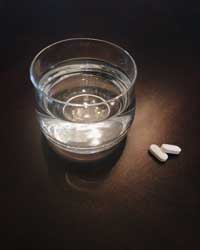Symptomatic treatment
-
in Allergy treatment

Symptomatic treatment is prescribed and used when acute allergy symptoms appear. If there are symptoms -medications are prescribed. Most often, such treatment is prescribed for:
- In acute allergic conditions (acute urticaria, Quincke's edema);- In case of exacerbation of chronic year-round allergies;
- In the spring-summer period, when patients come to the doctor with symptoms of hay fever: watery eyes, swelling of the mucous membrane, abundant discharge of a liquid nature from the nose, sneezing, shortness of breath.
When prescribing symptomatic treatment in this case, the manifestations of allergies, as a rule, pass quickly, but return if the medicine is stopped. The symptoms of pollinosis completely disappear when those plants that cause allergies stop blooming.
Usually, such people feel good during the winter period, completely forgetting about annual allergies. For the next season, everything is repeated, and mountains of pills are needed again. Since allergies are an insidious condition, the annual symptoms can worsen with each passing year and become increasingly severe. And, with an unfavorable result, develop into a disease called "Bronchial asthma".
Therefore, the main skill and work of an experienced allergist is not only the correct prescription of drugs in case of exacerbation, but the ability to find the cause of the allergy (allergen) and prescribe TRUE TREATMENT - Specific Immune Therapy (SIT)



